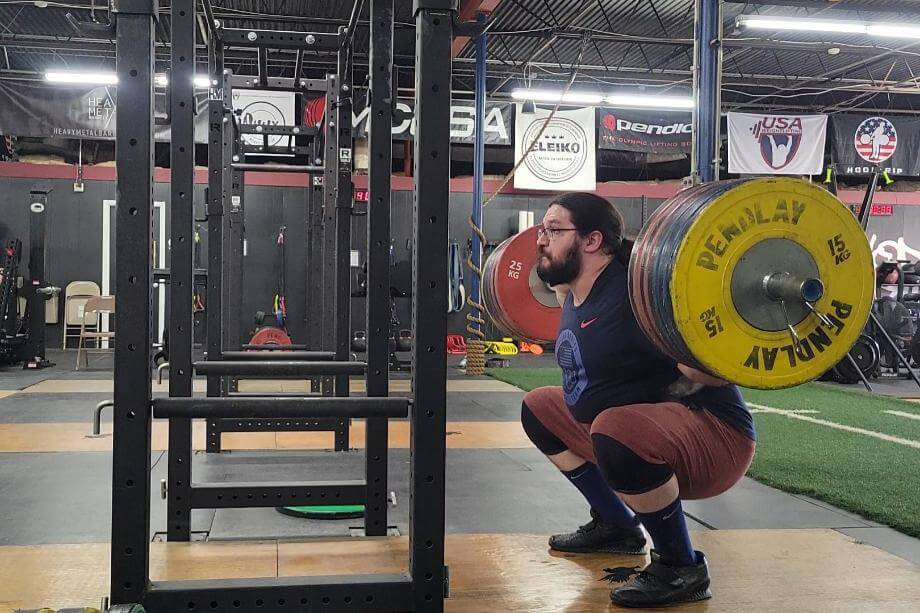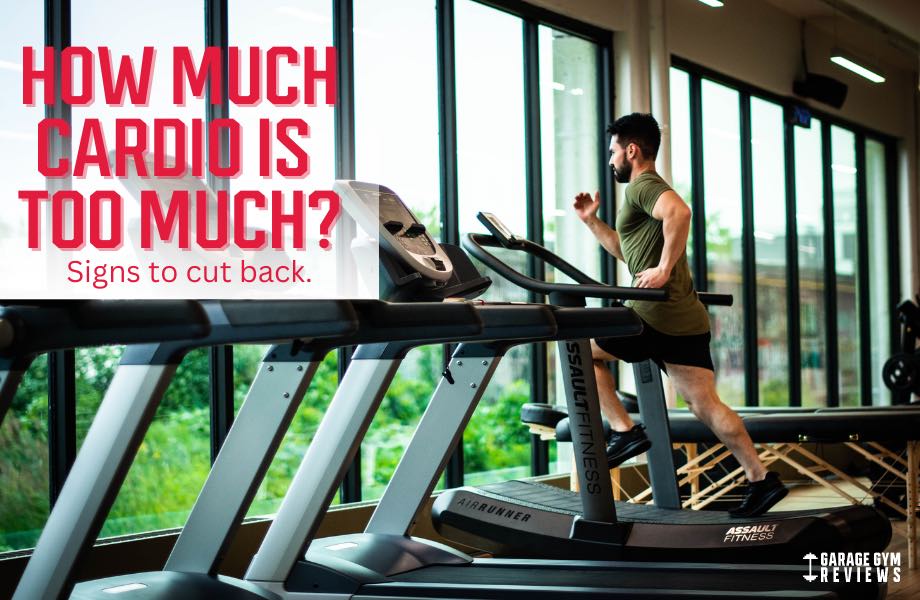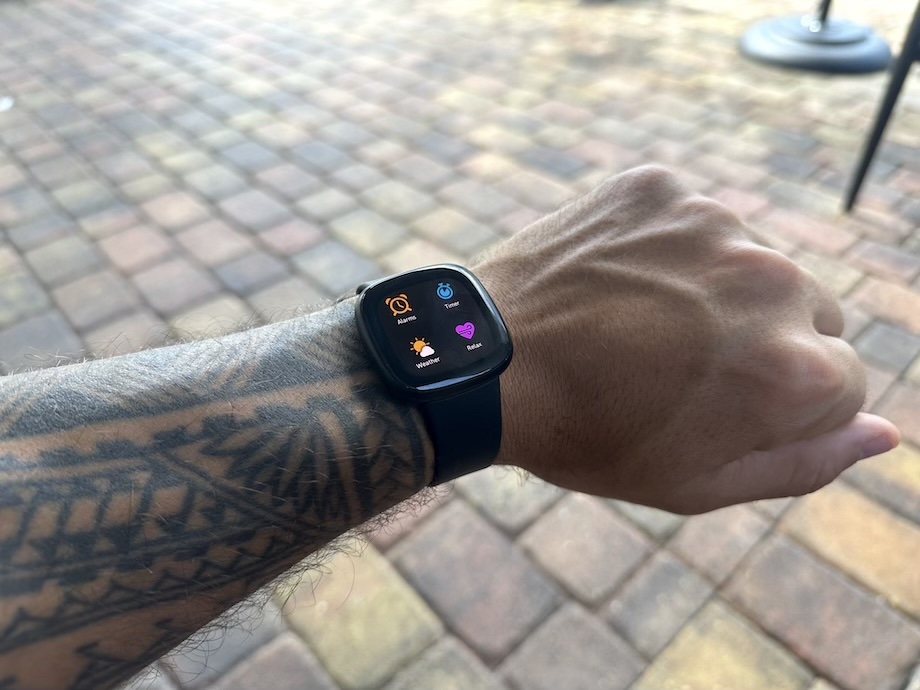This article sponsored by
Have you ever wondered when is the best time of day to exercise? I most certainly have. Some people prefer morning workouts, proclaiming that the early bird gets the worm. Others swear that evening hours are the best time to work out and help them sleep better. Then there are a few folks out there who don’t believe that the time of day matters at all.
We’re going to explore if the morning person is better off than the night owl (and vice versa) when it comes to achieving their fitness goals. Whether you’re in a gym or using an online personal trainer through a program like Future, let’s dive into whether you should do morning vs evening workouts.
The Science Behind Morning Exercise
It’s no question that consistent physical activity, like aerobic exercises and strength training, is good for the body. Doing cardio is deemed to be an effective preventative strategy for, at minimum, 25 chronic conditions. In fact, based on one study, risk reduction for these conditions, like type 2 diabetes and cardiovascular disease, is somewhere between 20 and 30%1. But does the time of the day really matter?
RELATED: Cardio vs. Strength Training
In one 2016 cross-sectional study2, researchers looked at the physical activity of 7,157 women using accelerometers. The study revealed that women who were less active during morning hours were possibly at greater risk of becoming obese. This suggests that time of day may play a role, especially behaviorally.
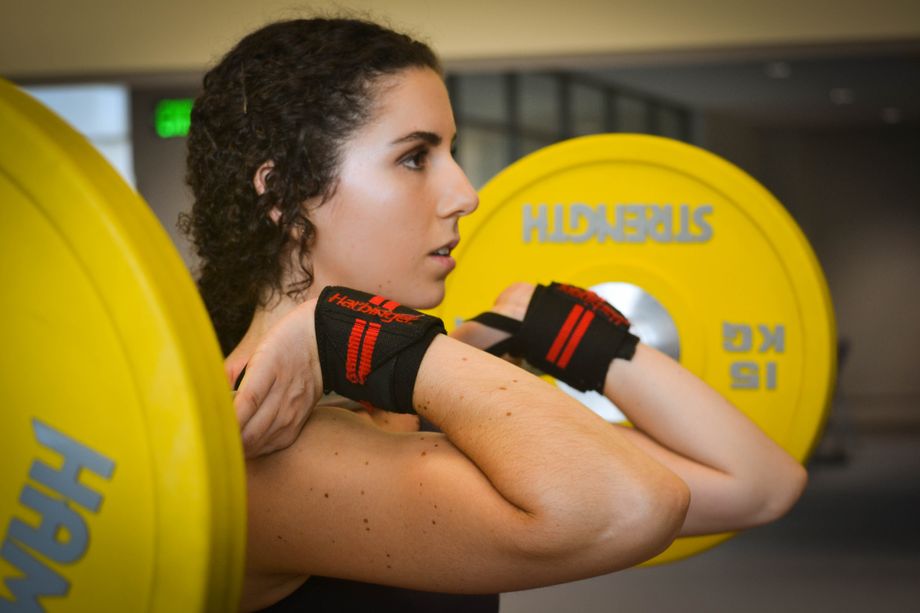
Another study completed in 20203 looked at circadian rhythm physiology to see if it was somehow linked to body weight regulation and obesity. For 10 months, overweight and obese physically inactive adults participated in a supervised exercise program. Each participant was categorized by the time of day they finished their workout session. During the final month, they documented that weight loss was much greater among those who worked out between 7 a.m. and 11:59 a.m.
A literature review completed in October 20204 also suggests that morning exercises may promote better exercise levels and enhance self-regulation. They noted that physical activity levels are usually lower among obese adults, and while they may want to exercise, it’s challenging to translate intention into behavior. Therefore, encouraging consistent morning workouts could be the leverage needed to turn thoughts into action, especially if data supports that.
The above findings demonstrate that morning exercise might be better, in terms of specific health benefits, but new studies are still needed to validate these claims further.
Morning Workouts: Pros and Cons
To work out in the morning or not to work out in the morning: That is the question. We’ll address the pros and cons of doing so that you can decide what’s best for you.
Pro: Rapid Fat Burning
If you work out in the morning and do so on an empty stomach, you’ll tap into the benefits associated with fasted exercising. According to a 2020 study on exercise training and fasting5, one of those benefits is the body increasing the breakdown of body fat. It also invigorates fat oxidation, which results in raised fat utilization and weight loss.
You could achieve those benefits at night, too, but most people don’t want to have an empty stomach all day.
Pro: It Can Better Your Mood For The Day
Have you ever noticed that you feel better after working out? Well, that’s no coincidence. Exercising is good for your mental well-being. When you do aerobic exercise, you reduce stress hormones like adrenaline and cortisol 6.
It also boosts endorphins, which are hormones that relax you and give you a positive feeling. This is what is said to happen with runner’s high, but really it can be any form of exercise that requires you to push yourself.
Pro: You’re Free Afterward
If you happen to get your workout done at the crack of dawn, you no longer have to think about it. Early morning workout schedules allow you to check it off the list at the start of your day so you can focus on other priorities. Free time for the rest of the day sounds good to me!

Con: Hard If You’re Not A Morning Person
Those who have to set multiple alarms and need 10-15 more minutes in bed in the morning may absolutely hate early workouts. Some people just can’t bring themselves to do it, especially if your workday starts at 8 a.m. You’d have to be up very early to get a quick cardio session in. As a result, most people would prefer to catch additional ZZZs instead.
Con: Greater Risk of Injury
Let’s say you are a morning person and want to get straight into working out as soon as you wake from a deep sleep. It might seem like a good idea, but it’s not. Your body needs time to adjust when you first wake up. Our core body temperature and heart rate7 are lower when we first get up, so we have to give ourselves time to adjust.
Always make sure you properly hydrate and thoroughly warm up in the AM before jumping into sprints, building muscle, or going into an all-out HIIT session.
Con: Reduced Exercise Performance
Have you ever started a morning workout and felt like it was impossible to give it your all? That’s likely because your joints are still a bit stiff, so you’re not as flexible. Studies8 show that we tap into our peak power in the evening when we have improved neuromuscular abilities.
| Morning Workout Pros | Morning Workout Cons |
|---|---|
| Rapid fat burning (on an empty stomach) | Challenging if you’re not a morning person |
| Better mood | Could carry a higher risk of injury |
| You’re free afterward | May lead to reduced exercise performance |
The Case for Mid-Day Workouts
If you’re not a fan of morning workouts and don’t want to wait until the end of the day, there’s still the afternoon. For many, this time of day isn’t an option if they’re at work, but for others, it’s a perfect time to complete their workout routine.
Afternoon Workouts: The Pros and Cons
There are definitely some pros and cons to working out in the late afternoon, which we’ll address below.
Pro: The Gym = Almost Empty
If you hit the gym between 11 am and 3 p.m., guess what? Few people are going to be there. That means you won’t have to wait for someone to finish a set on your favorite machine. So it may be a tad bit easier to get in and out. Who’s going to complain about that? Not me!
Pro: May Give You An Energy Boost
If you don’t go to the gym and instead exercise at home on your own or guided with app-based Future programming, you may find that an early afternoon workout gives you a boost.
Those who feel tired around the afternoon would probably benefit from a quick workout session. According to a 2008 study9, exercise can decrease fatigue by 65% and increase energy levels by 20%.
Online Personal Training
Future

Pros & Cons
Pros
- Incredible user interface; very well designed and intuitive
- Choose your own coach based on your personal preferences and goals
- Lots of variety in your workouts
Cons
- $199 per month membership cost
- No real-time coaching from your trainer
Bottom Line
Although it costs about $200 a month, Future features a user-friendly interface, customizable programming, and excellent support from your personal coach.
Pro: You’re Likely Less Hungry
When you work out in the morning, you’re probably doing so on an empty stomach, which is a bit challenging. It’s tough to work out when you’re hungry, and hunger can make you angry. If you work out hangry, you won’t be able to work out as hard or as long. Therefore, by the afternoon, you’ve likely gotten some nourishment and feel ready to complete some physical activity.
Pro: Sleeping In, For $1,000, Alex
Who am I kidding? There’s nothing quite like snoozing in a little longer. When you wait until the afternoon, you’re more than likely not rushing out of bed to do aerobics. You’ve had time to get up and start your day gradually. This could be good for your overall sleep quality, because waking up too early could mean you haven’t gotten the recommended seven to eight hours of sleep10.
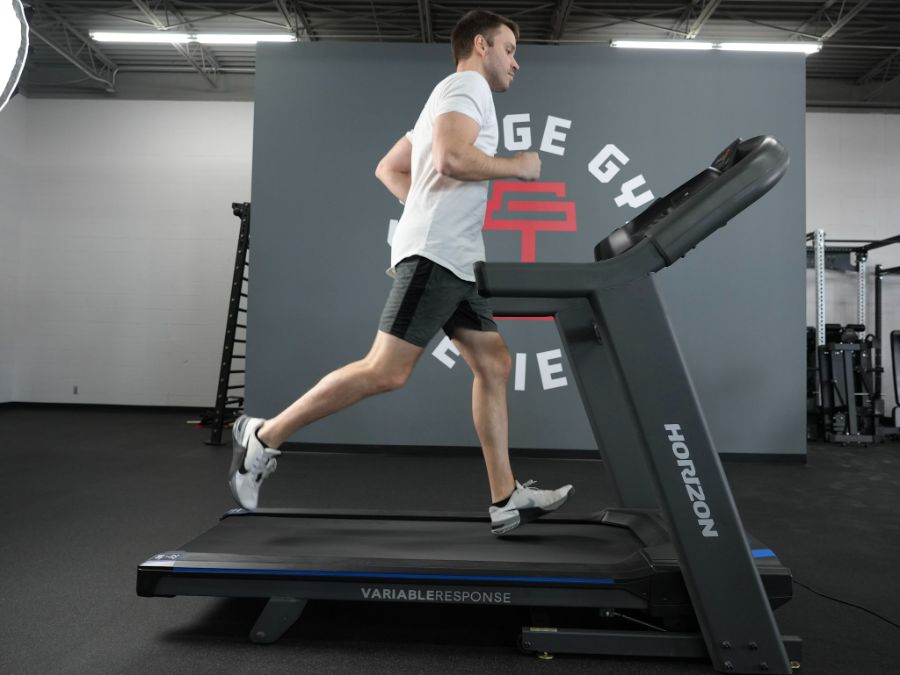
Con: Difficult To Commit To
After a long day at work, it can be challenging to come home and do a late afternoon workout session. Plus, more tasks may have piled up. When you work out in the morning, you can get it out of the way. However, when you wait until this time of day, you could skip it to complete other obligations.
Con: Might Be a Distraction
If you split your workday at lunch for a workout, it could end up being a distraction. You might be thinking too much about your workout to be productive at work, or you might be thinking too much about work to enjoy your workout.
Con: Not Enough Time
If you only get a 30-minute break from work, you might have to choose between a workout and lunch. It’s understandable that you pick eating, because: survival.
| Afternoon Workout Pros | Afternoon Workout Cons |
|---|---|
| Gyms are less crowded | Difficult to commit to |
| May boost your energy levels | Could be distracting |
| You’re less hungry | May not have the time |
| You can sleep in |
Why Evening Workouts Could Be Better
We’ve looked at morning and afternoon workouts, so now it’s time to see if evening workouts might be the move. According to one study, it might be for specific populations.
In January 2020, a study11 was completed on individuals with Type 2 diabetes to see if syncing meals with exercise and circadian clocks would make a difference. Interestingly, individuals with Type 2 diabetes have an inverted circadian rhythm. Those without diabetes have the highest liver and peripheral insulin sensitivity and glycemic control in the morning, which worsens as the day progresses. In people with diabetes, though, their insulin sensitivity and glycemia are typically better in the evening and progressively worsen overnight.
The researchers hypothesized that working out in the evening, when glycemia and hepatic insulin sensitivity is the worst, could be more beneficial to those with Type 2 diabetes. Doing an evening exercise may improve their glycemia after dinner, boost insulin sensitivity overnight, and lower fasting morning blood glucose levels. Therefore, it may be something to consider if it could help with disease management.
Evening Workouts: Pros and Cons
Night owls, this section is specifically for you. We’ll see the advantages and disadvantages of working out at night.
Pro: Work Out Longer
Once work is out of the way and you’re settled at home, you can focus on working out. Those who work out in the morning may actually be cutting their sessions short to make sure they arrive to work on time. But when you exercise at night, you can do a steady-state cardio workout without feeling rushed. Plus, you also benefit from better exercise performance since it’s enhanced in the evening.
Pro: You’re Likely Better Hydrated
By nighttime, you’ve likely consumed water when you woke up, before and after meals, and countless other times throughout the day. So by this point, you should be adequately hydrated and ready to work out.
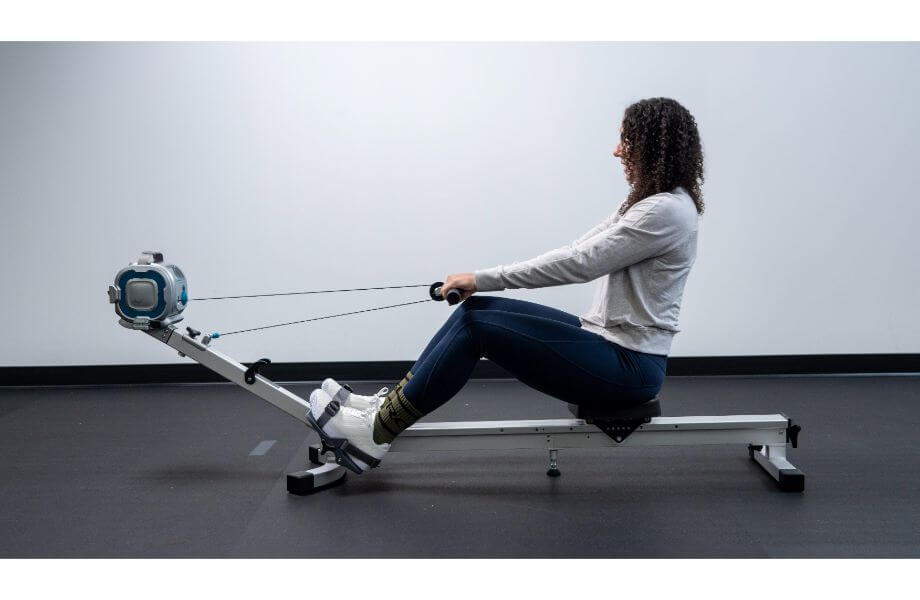
Con: Cancel Your Other Plans, Buddy, or Skip A Workout
Similar to when you wait until the afternoon, other tasks could pop up that make it hard for you to work out. There may come a time when you have to decide between doing something fun or staying committed to building muscle mass. Which one are you going to choose?
Con: Could Disrupt Your Sleep Schedule
Is there such a thing as waiting too late to work out? Well, according to a 2018 study12, exercising approximately one hour before bed could make it very difficult to fall asleep. However, the type of exercise you do does matter. For example, yoga might relax you enough to help you fall asleep, but weight lifting isn’t recommended. So, save your muscle growth activities for the morning or afternoon if it’s too late.
| Evening Workout Pros | Evening Workout Cons |
|---|---|
| You Can Workout Longer | May have to cancel your other plans or skip your workout |
| Better Hydrated | Might mess up your sleep schedule |
Final Takeaway: Morning vs. Evening Workout
So, what say you? Now that you’ve read scientific claims about morning, afternoon, and evening workouts, what will you do? There are so many different factors to consider when it comes to your fitness goals, like your work schedule or if you have kids. As a result, you truly have to make an effort to fit a workout routine into your lifestyle.
Depending on your agenda, you may find yourself working out in the early morning on some days and in the late afternoon on others. That’s totally okay, and you shouldn’t beat yourself up about it if you sometimes have to switch up your routine. Don’t allow yourself to get too caught up in the time of day because you don’t want that to demotivate you.
In fact, one article published in the Exercise and Sport Sciences Review13 journal says that “the optimal timing of exercise to maximize health benefits is currently unknown.” They go on to say that “we urge caution with regard to recommendations on the “optimal time of day” to exercise for optimal health benefits.” This is likely because if people miss the “supposed” primetime to work out, they may skip it altogether.
Morning vs. Evening Workout: Q&A
Is It Better To Workout in the Morning Or Evening?
The best time of day to work out is whatever time works for you. The bottom line is to make sure you DO work out so you can enjoy its benefits.
What is the best time of day to exercise?
A lot of research points to the early morning being a better time to exercise, but it also depends. Based on the study mentioned above, a person with diabetes probably should exercise at night to manage their condition. So, it really depends.
Is it okay to work out at 7 p.m.?
Sure, and a lot of people do. In fact, 7 p.m. is a typical time for the after-work crowd. Therefore, if this is the only time you can get your cardio in, please do!
How Late is Too Late to Exercise?
It ultimately depends on your bedtime. For instance, if you go to bed at 10 p.m., doing a workout at 8 or 9 p.m. might be too late, especially if you’re doing interval training. Certain exercises could get you pumped and energized, which isn’t what you want when it’s time for bed.
References
- Rhodes RE, Janssen I, Bredin SSD, Warburton DER, Bauman A. Physical activity: Health impact, prevalence, correlates and interventions. Psychol Health. 2017;32(8):942-975. doi:10.1080/08870446.2017.1325486
- Chomistek AK, Shiroma EJ, Lee IM. The Relationship Between Time of Day of Physical Activity and Obesity in Older Women. J Phys Act Health. 2016;13(4):416-418. doi:10.1123/jpah.2015-0152
- Willis EA, Creasy SA, Honas JJ, Melanson EL, Donnelly JE. The effects of exercise session timing on weight loss and components of energy balance: midwest exercise trial 2. Int J Obes (Lond). 2020;44(1):114-124. doi:10.1038/s41366-019-0409-x
- Schumacher LM, Thomas JG, Raynor HA, Rhodes RE, Bond DS. Consistent Morning Exercise May Be Beneficial for Individuals With Obesity. Exerc Sport Sci Rev. 2020;48(4):201-208. doi:10.1249/JES.0000000000000226
- Zouhal H, Saeidi A, Salhi A, et al. Exercise Training and Fasting: Current Insights. Open Access J Sports Med. 2020;11:1-28. Published 2020 Jan 21. doi:10.2147/OAJSM.S224919
- Harvard Health Publishing. Exercising to Relax. 2020, July 7.
- West DJ, Cook CJ, Beaven MC, Kilduff LP. The influence of the time of day on core temperature and lower body power output in elite rugby union sevens players. J Strength Cond Res. 2014;28(6):1524-1528. doi:10.1519/JSC.0000000000000301
- Seo DY, Lee S, Kim N, et al. Morning and evening exercise. Integr Med Res. 2013;2(4):139-144. doi:10.1016/j.imr.2013.10.003
- University of Georgia. (2008, March 2). Low-intensity Exercise Reduces Fatigue Symptoms By 65 Percent, Study Finds. ScienceDaily. Retrieved November 10, 2023 from www.sciencedaily.com/releases/2008/02/080228112008.htm
- Centers for Disease Control and Prevention. How Much Sleep Do I Need? 2023, September 14.
- Heden TD, Kanaley JA. Syncing Exercise With Meals and Circadian Clocks. Exerc Sport Sci Rev. 2019;47(1):22-28. doi:10.1249/JES.0000000000000172
- Stutz J, Eiholzer R, Spengler CM. Effects of evening exercise on sleep in Healthy Participants: A systematic review and meta-analysis. Sports Medicine. 2018;49(2):269-287. doi:10.1007/s40279-018-1015-0
- Parr EB, Heilbronn LK, Hawley JA. A Time to Eat and a Time to Exercise. Exerc Sport Sci Rev. 2020;48(1):4-10. doi:10.1249/JES.0000000000000207


